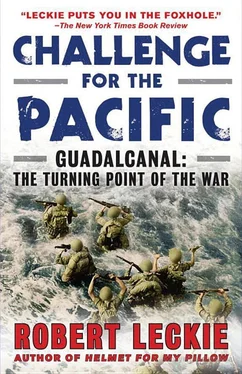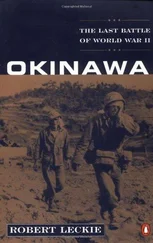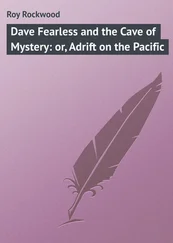Saburo’s squadron always flew west toward New Guinea. But there were other planes of the 25th Air Flotilla which flew southeast to the Solomon Islands. Beginning with big Bougainville about two hundred miles southeast of Rabaul, the Solomons run on a southeast tangent for roughly another four hundred miles. They form a double chain of islands—actually the peaks of a great drowned mountain range—facing each other at near-regular intervals across a straight blue channel from twenty to one hundred miles wide.
The objective of the Japanese bombers was the tiny island of Tulagi, the site of the headquarters of the British Resident Commissioner—for Britain held the Southern Solomons—and now used by the Royal Australian Air Force as a seaplane base. There was also a radio station on Tulagi. The Japanese bombed it regularly. They could not know that their explosives were merely convulsing the rubble of ancient and inadequate radio equipment. The operator, a retired Australian seaman named Sexton, had continually complained to headquarters: “If the Japs come here and ask me where the radio station is, and I show them this , they’ll shoot me for concealing the real one.” 6
Tulagi had an excellent anchorage, formed between the island’s northern shore and the bigger bulk of Florida Island to the north. Sometimes, after the Japanese pilots had watched their bomb-hits making yellow mushrooms on the radio station, or their misses forming white rings in the black of the bay, they banked lazily to fly low over a large long island twenty miles directly across the channel behind or to the south of Tulagi-Florida.
Seen from the sky, it was a beautiful island; about ninety miles in length and twenty-five at its wide waist, and traversed end to end by lofty mountains, some as high as 8000 feet. The mountains crowded steeply down to the sea on Guadalcanal’s southern or weather coast, abruptly joining reefs and rocks where a thunderous tall surf pounded eternally: no boats could land on that coast, and very few could hold at anchor there. But the northern coast, ah!, there was a long and gentle shore upon which the smallest boats might beach. Here, groves of seaward-leaning coconut palms threw star-shaped shadows upon white beaches scoured by murmuring wavelets; here the island’s numerous swift and narrow rivers came tumbling down to the sea or were penned by impassable sandbars into deep lagoons; and here the sun sparkled on water, glinted off the brilliant plumage of jeweled birds, glittered on sand and beamed upon mountainsides dappled by broad patches of tall tan grass.
At night—on one of those high, soft, star-dusted southern nights when a white wand of a moon enchanted all in violet and silver—it broke the pilots’ hearts.
It was a lovely island, as exotic as its Spanish name; a word which contained two of those outlandish L-sounds which, on Japanese lips, usually come forth as R. And so the Flotilla’s pilots referred to their enchanted island as “Katakana.”
And that, of course, is Japanese for Guadalcanal.
Martin Clemens was on Guadalcanal. He was the British District Officer. He was as British as a young and charming and ambitious civil servant can be. In his late twenties, Martin was a dashing figure: tall, blond, and handsome in his slouch hat and khaki shorts, a small pistol at his hip, a fine military mustache upon his lips and a radiant golden beard beginning to burgeon upon his chin.
Martin Clemens had been three years in the Southern Solomons, having trained there as a cadet and served as a District Officer on San Cristoval, southernmost of the chain, and Malaita on the opposite side of the channel. Clemens knew the loneliness of these sparsely inhabited islands. He had spent days in the wilderness of the jungles, seeing only his native scouts and carriers; coming suddenly upon those tiny “villages” which were often only clusters of thatched huts set upon the cliff of some abyss or the bank of some wild river. There the District Officer was respected because British law was feared; but there also no able-bodied male was ever without his tomahawk or spear.
Clemens also thought that Guadalcanal was beautiful. On the outside.
On the inside, he knew, she was a poisonous morass. Crocodiles hid in her creeks or patrolled her turgid backwaters. Her jungles were alive with slithering, crawling, scuttling things; with giant lizards that barked like dogs, with huge red furry spiders, with centipedes and leeches and scorpions, with rats and bats and fiddler crabs and one big species of landcrab which moved through the bush with all the stealth of a steamroller. Beautiful butterflies abounded on Guadalcanal, but there were also devouring myriads of sucking, biting, burrowing insects that found sustenance in human blood: armies of fiery white ants, swarms upon swarms of filthy black flies that fed upon open cuts and made festering ulcers of them, and clouds of malaria-bearing mosquitoes. When it was hot, Guadalcanal was humid; when the rains came she was sodden and chill, and all her reeking vegetation was soft and squishy to the touch. No, she was neither enchanting nor lovable; and Martin Clemens had not liked her since he came to Aola Bay on Guadalcanal’s northeast coast at the end of January.
Now, at the end of March, he was in charge of the entire island and faced with the problem of what to do with a native population whose loyalty seemed to be wavering. Three months ago there had been peace and order. But then, with the Japanese occupation of Rabaul, all had changed to chaos. Most of the Europeans had fled and many of their habitations had been wrecked by natives either resentful or parading resentment as an excuse for looting. Some of the older natives could remember that the Germans had been ousted from Bougainville in World War I. Some of them were wondering aloud if the detested Japanese—those short tan men who plundered the pearl shell on the natives’ reefs—were actually tough enough to do the same to the British. Were men like Ishimoto to replace the District Officers? Mr. Ishimoto, the surly little carpenter who had worked for the Lever Brothers Plantation on Tulagi, would he be back with his conquering countrymen? What would happen to them all then? What would the Japanese do to them?
Up north, they had heard, the Japanese had slaughtered cattle and requisitioned food. They had forced the natives to work for them. They had killed missionaries and closed the mission schools, opening their own where the only thing they taught was how to bow low. And the Japanese were coming. This they knew. Their minds were not so simple as to mistake the meaning of the bombing raids on Tulagi.
So they came crowding around Clemens, these headmen, their dark bodies glistening with sweat, their strong white teeth stained red with betel-nut juice, their huge fuzzy heads bleached pink with lime and fire-ash, their broad, seamed faces alive with anxiety and doubt.
“Japan he come, Massa,” they said. “You stop along us?”
Clemens nodded gravely.
“No matter altogether Japan he come,” he said. “Me stop along you-fellow.” Their tense faces relaxed, and Clemens continued: “Business belong you-fellow all the same follow me. All the way. By an’ by, altogether man belong me-fellow come save you-me. Me no savvy who, me no savvy when, but by an’ by everything he all right.” 7
It was not a very spectacular promise, especially on the lips of a stranger most of them had never met before; but it was all that Clemens could say: stick with me and you won’t be hurt.
The headmen left with quiet murmurs. Clemens could only hope they would stick. Meanwhile, he thought with gentle irony, my orders remain: “Deny the resources of the district to the enemy.” How? With whom? He was alone, but for a few goldminers up on Gold Ridge. D. S. MacFarlan, the Australian naval officer who had taught him how to use the teleradio, had already “upsticked and away,” taking with him Ken Hay, the manager of Berande Plantation. Clemens smiled at the thought of the two of them back in the bush: MacFarlan in his immaculate whites, Hay—one of the fattest men he had ever seen—puffing up a jungle track. Then there was Snowy Rhoades. Snowy was at the northwest end of the island. Snowy, with his bushy hair and cold eyes and prizefighter’s stance; he was tough enough, too tough in fact. He liked the idea of the Japanese coming, so that he could kill a few of them. The difficulty with Snowy would be to keep him and his police boys quiet. If they were going to be of any use as coastwatchers, they had to lie low.
Читать дальше












